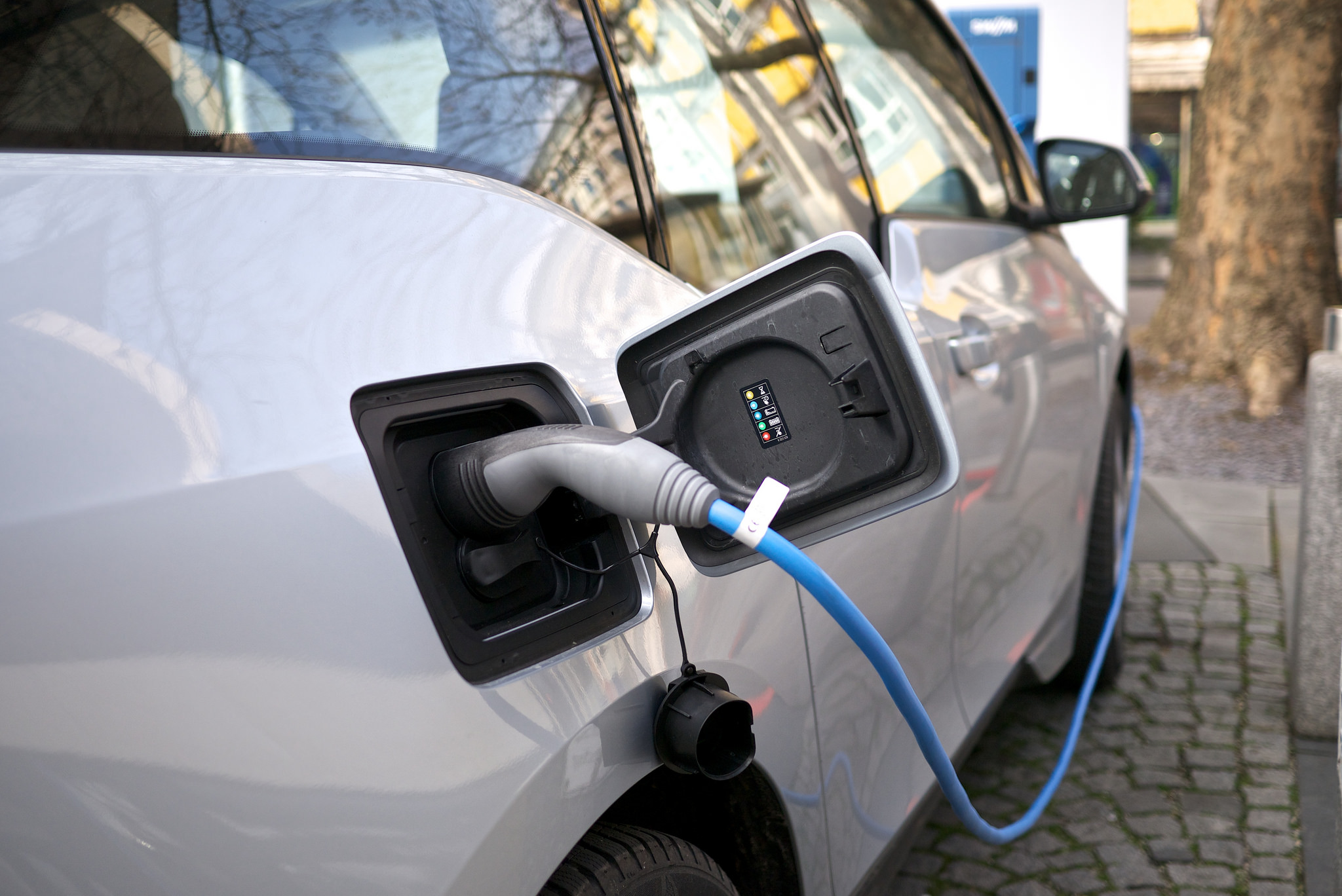US President Donald Trump has plans to rewrite Barack Obama’s Corporate Average Fuel Economy policies, originally put in place to kick-start the switch to more environmentally friendly energies in cars such as electric or solar. The regulation implemented a benchmark for car manufacturers to meet in order to change the majority of cars on the road to electric. Obama’s standard required that by 2025 new US-manufactured vehicles must be much more fuel-efficient, increasing from today’s average of 26 miles per gallon, to 54 miles per gallon.
Many in the industry, including the top 12 companies in the Auto Alliance (BMW, FCA, Ford, GM, Jaguar, Mazda, Mercedes-Benz, Mitsubishi, Porsche, Toyota, Volkswagen, and Volvo) have asked Trump to roll back this standard in the interest of seeing a ‘revival’ of the car industry. This is in the best interest of short-term profits for car companies, but not for long-term innovation in the car industry.
Tesla is a perfect example of a successful, innovative car company that doesn’t sacrifice profits for environmental innovation. Tesla’s sales doubled in 2016, and the market value of the company has recently surpassed both Ford and GM. General sales in electric cars are rising, as consumers become more environmentally conscious and as technology advances to make alternative energy more convenient. In 2016 alone, electric car sales in the US rose by 59%. Many other key manufacturers plan to enter the luxury electric car market to tap into the demand for ‘green’ products, while consumers are making the switch to electric due to the tax credits offered to electric buyers. Many countries in Europe offer thousands of Euros as incentive to buying electric autos. In France, rebates of up to €6300 are available to green buyers. At the 2017 Geneva Auto Show, Lexus offered Tesla some competition as they unveiled their plan for their very own luxury hybrid.
However, Obama’s tough standards may be putting too much pressure on car manufacturers. The Volkswagen scandal in October of 2015 brought arguments to light accusing the regulations of being unrealistic, and that manufacturers may feel that the strict policies cause technology to be rushed or uncompleted. Volkswagen paid US $18 billion as a consequence of cheating emission standards by creating technology that overrides efficiency tests. Many compromises make engineering a car increasingly difficult; some standards require many vehicles to use lighter materials to increase efficiency, thus forfeiting safety.
Manufacturers also express concern that prices will be raised too high for consumers, due to the large amount of money manufacturers must spend on research and the development of energy alternatives or more efficient engine methods. While consumers may be able to afford the oil prices of today, these prices will not last forever, since they are sure to rise as oil gets more scarce and difficult to extract. Developing new technology requires a great deal of funding, however in the long run the investment may benefit companies that make the switch before they are forced to adapt to electric due to oil shortages, or increasing environmental concerns. Mercedes-Benz announced that half of its approximate £10 million a day in research and development costs go towards reducing CO2 emissions. However, Mercedes are known for their achievements in innovation and are currently a leader in electric auto sales.
Car corporations have little motivation from Trump to create new efficiency technology. Their argument against efficiency regulation is that it is too difficult to come up with solutions that won’t bring the prices up and quality down. Thus, convenient technology that can be made available to car corporations must be accessed through other scientific avenues, such as engineering firms or academic research. To further unlock technology that will help to build more efficient and environmentally friendly cars, more funding must be made available to scientists outside of car corporations – an avenue which Trump has narrowed for scientists.
The Environmental Protection Agency will be cut in Trump’s 2017 budget by 31%, including 50 programs geared towards scientific research and the preservation of the environment. Federal tax credits benefiting the green automotive consumer are expected to be discontinued by President Trump. The Chinese Government has also considered easing electric car quotas, currently set to requirements of 8% of automakers sales. A 2% reduction is being considered as manufacturers voice that these targets are too difficult to reach.
Another target of Trump’s policy revision trend is California’s Clean Air Act, which requires a portion of manufacturers’ sales to include a certain amount of zero-emission vehicles. However, the electric car business may suffer if these laws are taken away. Electric auto sales were expected to grow to 10% of all auto sales by 2025, but if quotas are taken down, there will be less incentive for car manufacturers to put in effort to develop new technologies. Car manufacturers may focus on the race to offer cars with more flashy technology, such as driverless cars. Currently, 11 manufacturers have no problem spending millions of dollars towards research and development set to release driverless cars, with the first being available in 2018 by Tesla.
Trump is known to side with corporations and to prefer economic growth over many environmental and humanitarian issues. However, he may be making policies to increase fossil fuel-powered engines since he owns stock in Texas’ Energy Transfer Partners, as well as a quarter-share in the Dakota Access pipeline. Trump ignored advice from the Office of Government Ethics to put stocks and his other business ventures in a blind trust to prevent from conflicts of interest, and states that he “has no conflict of interest provision as president.”
The shift to a more sustainable and efficient automotive market requires considerable government involvement and long-term planning to help put infrastructure in place, fund technology, and ease car manufacturers into this new frontier. China and Europe have already provided significant funds to encourage companies to get on board with more efficient cars, rather than hold on to old ways. Now the question is: will US car-makers be able to keep up with changing technologies if their incentives are taken away? Trump is making environmental innovation less of a priority, and is instead focused on giving car companies a break to boost the domestic car industry. This could result in a slump in innovation and the progression of science.
Photo: “BMW i3 Electric Car” (March 6, 2014), Karlis Dambrans via Flickr. Licensed under CC BY 2.0.
Disclaimer: Any views or opinions expressed in articles are solely those of the authors and do not necessarily represent the views of the NATO Association of Canada.




